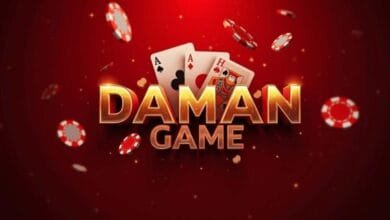Do Slot Games Rely 100% on Luck? Understanding the Role of Chance and Skill

Slot games have long been a staple in both land-based and online casinos, known for their simplicity and excitement. The flashing lights, engaging themes, and the thrill of watching the reels spin often lead players to wonder: are slot games purely based on luck, or is there more to it? With the outcome of each spin determined by a random number generator (RNG), many assume that slot games are entirely reliant on chance. However, while luck plays a significant role, it’s important to understand how various elements of slot games work, and whether skill has any influence.
In this article, we’ll explore whether slot games truly depend 100% on luck or if there are other factors at play that could influence your chances of winning.
The Role of Luck in Slot Games
At the core of every slot game is the concept of randomness. Modern slot machines—both physical and online—use a system known as a Random Number Generator (RNG) to ensure that the outcome of each spin is entirely random and independent of the previous one. This means that the outcome of a spin cannot be predicted or influenced by the player. The RNG is an algorithm that produces a sequence of numbers that correspond to the symbols on the reels.
The RNG works continuously, generating numbers even when the machine is not in use, so when a player presses the spin button, it simply selects the next number in the sequence. The stopping position of the reels is determined by this number, and the symbols that appear are based on it. This randomness is what makes slot games a form of gambling and contributes to their inherent unpredictability.
Since the results of each spin are determined purely by chance, it’s easy to understand why many players believe that slot games are 100% based on luck. Whether you are playing online slots or traditional mechanical slots, the randomness of the RNG ensures that no two spins are ever the same, and there’s no way to manipulate or alter the outcome.
Understanding RTP and Volatility
While luck is a major factor in slot games, there are other important concepts to consider that can affect the player’s experience. Two key factors in slots are Return to Player (RTP) and volatility, both of which can influence the long-term outcomes, though they do not change the randomness of individual spins.
- Return to Player (RTP): RTP is the percentage of the total money wagered on a slot game that is returned to players as winnings over time. For example, if a slot has an RTP of 96%, it means that for every $100 wagered, the machine will pay back, on average, $96 in winnings. However, this does not mean that every player will receive 96% of their money back—it is an average over a large number of spins. While the RTP provides a rough idea of how generous a game is over time, it does not guarantee any particular outcome on a given spin.
- Volatility: Volatility (or variance) refers to the risk associated with a slot game. High volatility slots tend to offer larger payouts but less frequent wins, while low volatility slots offer smaller, more frequent wins. Volatility affects how the game feels, but it doesn’t change the underlying randomness of the spins. Players who prefer the excitement of big wins may opt for high-volatility slots, while those who prefer steadier, smaller payouts might choose low-volatility games.
While RTP and volatility influence the overall experience and potential payout of a slot game, they still do not change the fact that each individual spin is random and based on luck.
Are There Any Skills Involved?
While slot bet 200 games are predominantly based on luck, some players may wonder if there is any skill involved in playing them. In traditional slot games, the outcome of each spin is entirely random, and no amount of strategy can influence it. For example, there’s no way to time your spins or predict when a winning combination will appear.
However, there are some skill-based slot machines and features that have emerged, especially in modern online casinos. Some slot games incorporate bonus rounds that involve mini-games where skill can be a factor. For example, in certain games, players may be required to make decisions or complete quick puzzles to unlock prizes. While these mini-games can add an element of skill, they don’t change the fundamental nature of the game—the spins themselves remain based on chance.
Additionally, players can increase their chances of enjoying the experience by choosing games with favorable RTP percentages and understanding the game’s volatility. This knowledge can help players make informed decisions about how much to wager and which types of slots they may want to play, but it doesn’t change the randomness of individual spins.
The Influence of “Hot” or “Cold” Machines
Many players believe in the concept of “hot” or “cold” machines—machines that are either due for a win or “on a streak.” This is a common belief in both online and land-based casinos, but it is important to clarify that slot games do not have memory. Each spin is independent of the last, and there is no such thing as a machine that is “due” to pay out. The idea of hot or cold machines is a myth, fueled by the natural human tendency to find patterns in random events.
Because of the RNG mechanism, the odds of winning are the same on every spin, regardless of what happened on the previous one. Therefore, no matter how many losses you may have had in a row, the next spin is just as random as the last.
Conclusion: Luck vs. Skill in Slot Games
To sum up, slot games are primarily based on luck. The random number generator ensures that each spin is independent and unpredictable, making them a form of pure chance-based gambling. While factors like RTP and volatility can affect your overall experience and potential for wins, they do not change the fact that the outcome of each spin is random.
Some slot games may include skill-based mini-games, but these do not alter the underlying randomness of the slot’s primary mechanics. Understanding these aspects can help you manage your expectations and approach the game with the right mindset.
In the end, whether you win or lose on a slot machine is determined entirely by chance. The thrill of spinning the reels comes from this uncertainty and the hope that, with a little bit of luck, you might land that big payout. Just remember that slots are a form of entertainment, and luck plays the central role in the outcome.




